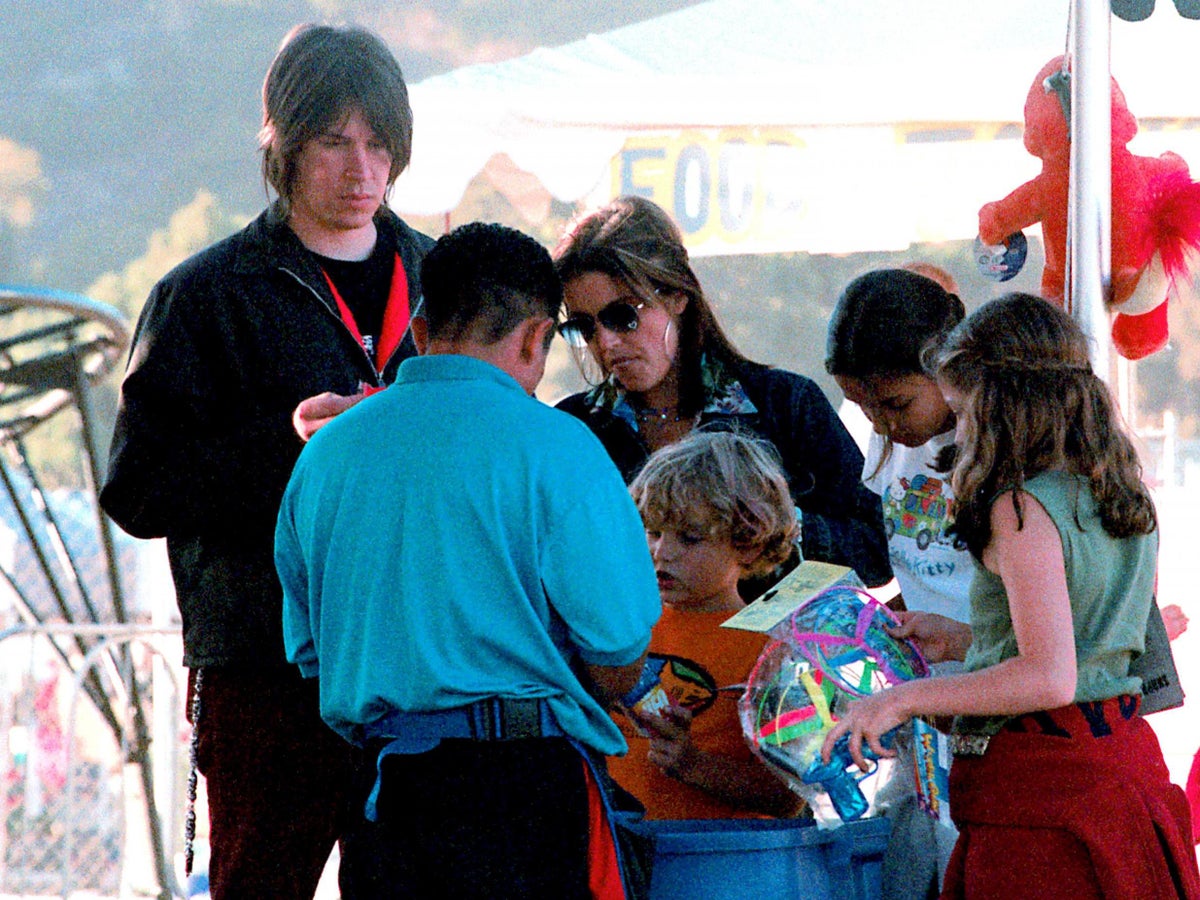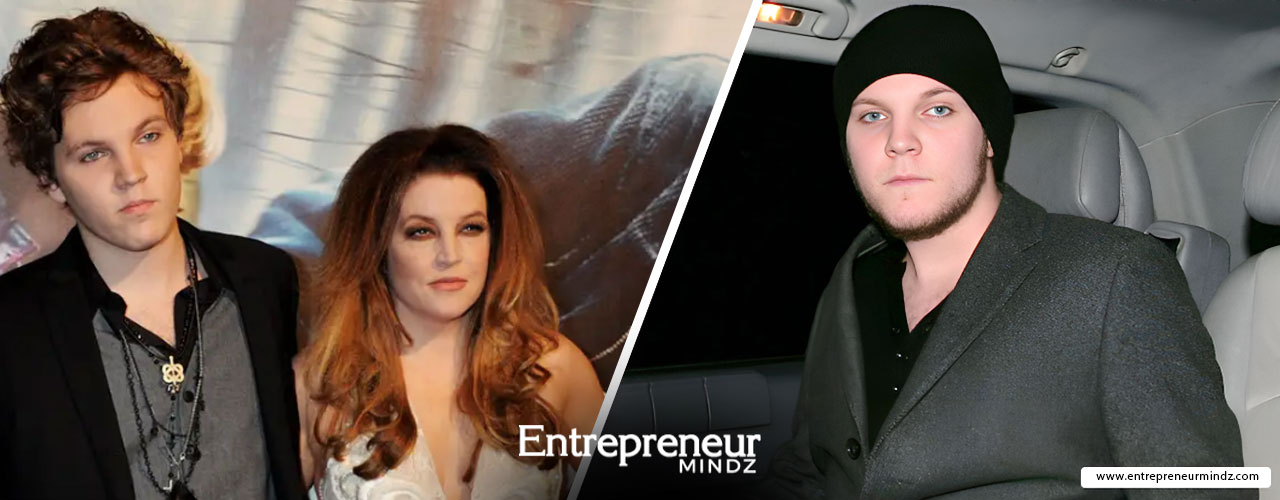When news of Benjamin Keough's passing broke in 2020, it sent shockwaves through the entertainment world and beyond. The grandson of the legendary Elvis Presley, Benjamin had carved out his own path in Hollywood, leaving behind a legacy that would forever be intertwined with his famous family. But what exactly happened on that fateful day? Let’s dive into the details and uncover the truth behind Benjamin Keough's death.
This isn’t just another celebrity tragedy story; it’s a reminder of how mental health struggles can affect even those who seem to have it all. Benjamin was an artist, a musician, and a deeply loved individual whose life ended far too soon. His passing left fans and loved ones grappling with questions about what went wrong and why.
As we explore the circumstances surrounding Benjamin Keough’s death, we’ll also look at the broader issues of mental health, family dynamics, and the pressures faced by public figures. This is more than just a tribute—it’s a call to action for greater awareness and support for those who need it most.
Table of Contents
- Biography: Who Was Benjamin Keough?
- What Happened on the Day of His Death?
- The Role of Mental Health
- Family Dynamics and Legacy
- Public Reaction and Tributes
- The Impact of His Death
- Debunking Myths and Misconceptions
- Lessons We Can Learn
- Resources for Mental Health Support
- Conclusion: Remembering Benjamin Keough
Biography: Who Was Benjamin Keough?
Before we delve into the events surrounding his death, let’s take a moment to remember who Benjamin Keough really was. Born on November 14, 1992, Benjamin was the only child of Lisa Marie Presley and actor Danny Keough. From a young age, he was surrounded by fame and fortune, but he never let the shadow of his grandfather overshadow his own dreams.
Benjamin pursued a career in music and acting, following in the footsteps of both his mother and his legendary grandfather. He appeared in several films, including "The Fallout" and "The Dead Lands," showcasing his talent and versatility as an actor. Music, however, remained his true passion, and he often performed live, captivating audiences with his charisma and raw talent.
Here’s a quick look at some key facts about Benjamin Keough:
Benjamin Keough’s Personal Details
| Full Name | Benjamin Storm Keough |
|---|---|
| Date of Birth | November 14, 1992 |
| Place of Birth | Los Angeles, California |
| Parents | Lisa Marie Presley (Mother), Danny Keough (Father) |
| Grandparents | Elvis Presley (Grandfather), Priscilla Presley (Grandmother) |
| Occupation | Actor, Musician |
What Happened on the Day of His Death?
On July 12, 2020, Benjamin Keough was found unresponsive at his home in Calabasas, California. The news quickly spread, leaving fans and family members devastated. According to reports, Benjamin had suffered a self-inflicted gunshot wound, and despite efforts to save him, he was pronounced dead at the scene.
Los Angeles County coroner’s office confirmed that the cause of death was a single gunshot wound to the chest, ruling it a suicide. The news came as a shock to many, especially given Benjamin’s young age and promising career. But what led to this tragic event? While the exact reasons may never be fully known, several factors point to a deeper struggle with mental health.
Timeline of Events
- July 12, 2020: Benjamin is found unresponsive at his home in Calabasas.
- Paramedics arrive but are unable to revive him.
- Los Angeles County coroner confirms the cause of death as a self-inflicted gunshot wound.
- Family and friends issue statements expressing their grief and shock.
The Role of Mental Health
Mental health has become a critical topic of discussion in recent years, and Benjamin Keough’s death shines a light on the importance of addressing these issues openly and honestly. Although he didn’t speak publicly about his struggles, those close to him have suggested that he battled depression and anxiety for years.
Living in the spotlight can be both a blessing and a curse. For Benjamin, the pressure of being part of one of the most famous families in history may have contributed to his mental health challenges. In a world where perfection is often expected, it’s easy to feel overwhelmed and isolated, even when surrounded by love and support.
Experts emphasize that mental health is not a sign of weakness but rather a complex interplay of biological, psychological, and social factors. It’s crucial to recognize the signs early and seek help before it’s too late.
Signs to Watch For
- Withdrawal from friends and family
- Changes in behavior or mood
- Loss of interest in activities once enjoyed
- Increased use of alcohol or drugs
- Expressions of hopelessness or despair
Family Dynamics and Legacy
Benjamin’s death left a profound impact on his family, particularly his mother, Lisa Marie Presley, and his grandmother, Priscilla Presley. Both women have been vocal about their grief and the need to honor Benjamin’s memory by promoting mental health awareness.
Lisa Marie Presley, herself no stranger to personal struggles, has spoken openly about the pain of losing a child. In a statement released shortly after Benjamin’s passing, she described him as a “beautiful, intelligent, and loving young man.” His grandmother, Priscilla Presley, echoed similar sentiments, calling Benjamin a “wonderful grandson” who brought joy to everyone around him.
As the family mourns their loss, they also celebrate Benjamin’s life and legacy. His contributions to the arts, his passion for music, and his kind spirit continue to inspire those who knew him.
Legacy Through Music
Benjamin’s music remains a testament to his creativity and emotional depth. Songs like “In the End” and “Take Me Down” showcase his ability to express complex emotions through lyrics and melody. Fans have found solace in his work, connecting with the raw honesty that defines his artistry.
Public Reaction and Tributes
The outpouring of support from fans and fellow celebrities was overwhelming. Social media platforms were flooded with messages of condolence and tributes to Benjamin’s life and work. Many shared personal stories of how his music had touched their lives, creating a sense of community in the face of tragedy.
Celebrities such as Billy Joel, who collaborated with Benjamin on a project, paid tribute to his talent and potential. Others, like Justin Timberlake and Miley Cyrus, expressed their condolences to the Presley family, acknowledging the immense loss they were experiencing.
Benjamin’s death also sparked conversations about the importance of mental health support, especially for young people in the entertainment industry. Fans organized fundraisers and awareness campaigns in his honor, ensuring that his legacy lives on.
The Impact of His Death
Benjamin Keough’s passing serves as a poignant reminder of the importance of mental health awareness and support. It highlights the need for open dialogue about mental health issues and the stigma that often surrounds them. By sharing his story, we can help others who may be struggling to find the courage to seek help.
His death also underscores the pressures faced by individuals in the public eye. While fame can bring opportunities and recognition, it can also lead to isolation and stress. It’s essential for those in the entertainment industry to prioritize their mental well-being and seek support when needed.
Breaking the Stigma
One of the most significant impacts of Benjamin’s death is the conversation it has sparked about mental health. By sharing his story, we can help break down barriers and encourage others to speak up about their struggles. It’s time to treat mental health with the same seriousness as physical health and ensure that resources are available for everyone who needs them.
Debunking Myths and Misconceptions
There are often myths and misconceptions surrounding high-profile deaths, and Benjamin Keough’s case is no exception. Some have speculated about the role of substance abuse or external pressures, but the truth is far more complex. Mental health issues are rarely caused by a single factor, and it’s important to approach these situations with empathy and understanding.
Experts emphasize that suicide is not a selfish act but rather a desperate cry for help. It’s crucial to listen to those who are struggling and offer support without judgment. By debunking myths and spreading accurate information, we can create a safer, more compassionate world for everyone.
Common Myths
- Myth: Suicide only affects people with mental illness
- Reality: Anyone can struggle with suicidal thoughts, regardless of their mental health history
- Myth: Talking about suicide will make it worse
- Reality: Open conversations can help reduce stigma and encourage help-seeking behavior
Lessons We Can Learn
Benjamin Keough’s death offers several important lessons about mental health, family dynamics, and the pressures of fame. First and foremost, it highlights the need for greater awareness and support for those struggling with mental health issues. It’s essential to recognize the signs early and seek help before it’s too late.
Additionally, his story reminds us of the importance of family and community in times of crisis. While fame can provide opportunities and resources, it cannot replace the love and support of those closest to us. By fostering strong relationships and open communication, we can help prevent tragedies like Benjamin’s from occurring.
Key Takeaways
- Prioritize mental health and seek help when needed
- Encourage open conversations about mental health
- Support loved ones who may be struggling
- Break down stigma and promote awareness
Resources for Mental Health Support
If you or someone you know is struggling with mental health issues, there are resources available to help. Here are a few organizations and helplines that offer support:
- National Suicide Prevention Lifeline: 1-800-273-TALK (8255)
- Crisis Text Line: Text HOME to 741741
- Substance Abuse and Mental Health Services Administration (SAMHSA): 1-800-662-HELP (4357)
- Mental Health America: www.mhanational.org
Remember, you are not alone. Help is available, and there is hope for a brighter future.
Conclusion: Remembering Benjamin Keough
Benjamin Keough’s death was a devastating loss for his family, friends, and fans around the world. Yet, in his passing, we find inspiration to create a world where mental health is prioritized and supported. By sharing his story, we honor his memory and ensure that his legacy lives on.
As we reflect on Benjamin’s life and work, let’s commit to making a difference. Whether it’s through open conversations, supporting loved ones, or advocating for mental health resources, we can all play a role in creating a safer, more compassionate world.
Take a moment to share this article, leave a comment, or reach out to someone who may be struggling. Together, we can make a difference and ensure that no one feels alone in their journey.


